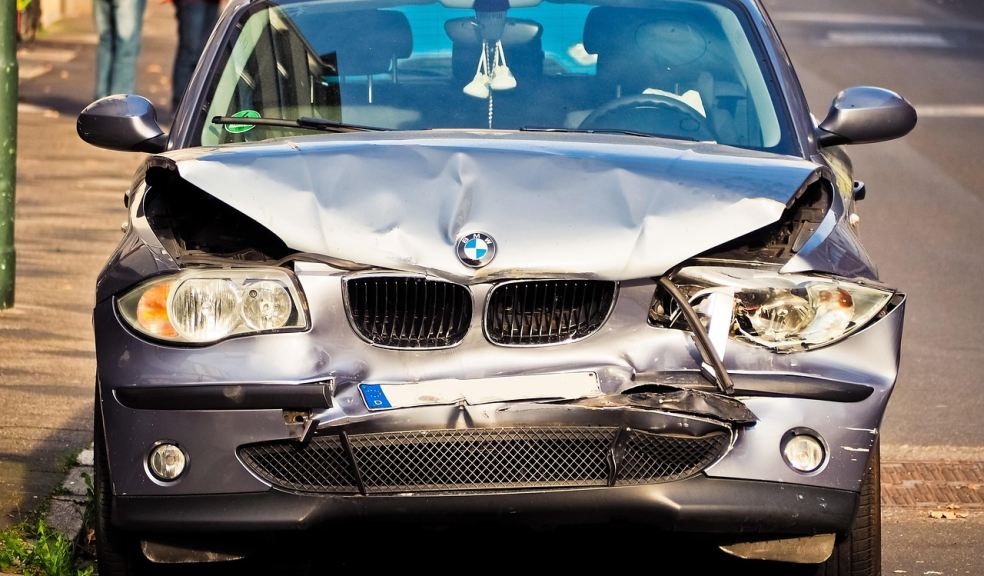
Can You Scrap a Car That’s Been Written Off?
If your car has been written off, you might be wondering if you can still scrap it. Yes, you can scrap a written-off car, but the process can differ from scrapping a regular vehicle. It’s important to know what steps to take if you want to dispose of the car.
Scrapping a written-off car often requires you to repair it if it falls under certain categories. This means getting professional help to fix the car before putting it back on the road. If you’d rather not bother with repairs, scrapping at an authorised treatment facility is another option.
The decision to scrap your car can depend on many factors, such as the extent of the damage and whether you prefer a cash settlement. Understanding these options can help you decide the best course of action.
What Does It Mean When A Car Is Written Off?
A car is written off when the insurance company decides it's not worth the expense to repair after an accident. It's determined by the cost of repairs versus the value of the car. Various categories determine whether a car can be repaired or must be scrapped.
Categories Of Written-Off Cars: A, B, S, And N
Cars are categorised based on damage severity. Category A indicates a car that is completely wrecked and must be scrapped. Category B cars also can't be returned to the road, but parts may be salvaged.
Category S (formerly C), involves structural damage, but the car can be repaired. Category N (formerly D), indicates non-structural damage that can be fixed. These categories affect what you can do with the car next.
Insurance Implications Of A Written-Off Vehicle
When a car is written off, the insurance company pays out the car's market value, not repair costs. This means you’ll likely receive a cheque for what the car is worth before the accident.
Your insurer often takes ownership of the car, especially for Category A and B write-offs. For repairable cars, you can sometimes choose to keep the car and repair it yourself.
Legal Definitions And How They Affect Scrapping
Legal definitions for written-off cars determine whether they can be returned to the road or must be scrapped. Cars in categories A and B must go to Authorised Treatment Facilities for scrapping and disposal.
A repaired car in categories S or N may return to the road after passing safety checks. Knowing the legal requirements helps ensure you handle your written-off vehicle correctly, protecting your rights and responsibilities.
Can You Scrap A Category A Or B Car?
Category A and B cars have specific rules when it comes to scrapping. Category A cars must be completely destroyed, while Category B cars can have parts salvaged but require the body shell to be scrapped. Understanding these categories ensures that you comply with the legal requirements for handling end-of-life vehicles.
Why Category A Cars Must Be Destroyed
Category A vehicles are deemed to be the most severely damaged. These cars are classified as end-of-life vehicles (ELVs) and cannot be repaired or used for parts. The condition of a Category A car makes it unsafe for any reuse. The entire vehicle must be destroyed to prevent parts from being recycled, which ensures that no dangerous components return to the road.
Proper scrapping is essential for these cars. An authorised treatment facility (ATF) must handle the disposal. ATFs ensure that the vehicle is dismantled and scrapped according to regulations. By destroying Category A cars entirely, these procedures help to maintain road safety standards.
When Category B Cars Can Be Broken For Parts Only
Unlike Category A vehicles, Category B cars can be partially salvaged. Though the body shell must be scrapped, some parts might be reused. This category includes cars that have sustained damage making them unfit to drive, but some components remain undamaged.
Parts such as engines, transmissions, and interiors can often be salvaged. These can be sold and reused, providing value and reducing waste. It's crucial, however, to ensure that all parts are removed before the body shell is scrapped, as the shell cannot return to the road.
Legal Requirements For Scrapping Category A And B Cars
Legal regulations dictate the scrapping process for Category A and B cars. It's vital to use an authorised treatment facility to handle the dismantling and scrapping. This ensures compliance with environmental and safety standards, especially for end-of-life vehicles.
The Certificate of Destruction (CoD) is a legal requirement for both categories. It confirms the vehicle has been scrapped legally. Compliance with these requirements avoids legal issues and contributes to responsible car scrapping. Always double-check that your facility issues a CoD to ensure all legal obligations are met.
Can You Scrap A Category S Or N Car?
If your car has been written off under Category S or N, you can choose to repair it or scrap it. This choice depends on the car's condition and potential repair costs. Scrapping can often be quicker and simpler.
Why You Can Repair And Resell Category S And N Cars
Category S cars often have structural damage, and Category N cars usually face non-structural issues. You can repair both types if it makes financial sense. These cars can often be fixed by professionals, allowing you to put them back on the road legally.
If the repairs are affordable and you believe you can sell the car for a profit, repairing might be a good idea. Some buyers look for such cars at a lower cost to repair themselves. Keep in mind that repairing ensures the vehicle meets road safety standards.
When It Makes More Sense To Scrap Rather Than Repair
Scrapping a Category S or N car can be a good choice if repair costs are too high or the car is beyond repair. This is especially true if the car will not fetch a good resale price even after repairs. Scrapping is quick and often handled by the insurance company.
When scrapping, you avoid potential future maintenance problems that might arise from previous damage. It's also a straightforward way to dispose of the car with minimal hassle. Consider current scrap metal prices, as these can influence the amount you receive from scrapping the vehicle.
Documentation Needed To Scrap Category S Or N Vehicles
To scrap a Category S or N vehicle, you need the vehicle registration document (V5C). The V5C confirms your ownership and outlines the car's condition. You might also need to inform the DVLA that you no longer own the vehicle. This ensures your car is deregistered from your name.
Provide any other documents your scrap dealer may request. In some cases, insurance companies handle all documentation if the vehicle was part of a claim. Always check local regulations to ensure you have everything needed for a smooth process.
How To Scrap A Written-Off Car Legally
Scrapping a written-off car involves specific legal steps. It's important to follow the correct procedure to ensure everything is handled properly and according to the law. This includes informing your insurer, completing documentation, and obtaining official confirmation.
Informing Your Insurance Company Before Scrapping
Before you scrap your written-off car, notify your insurance company. They will need to process the claim and may offer advice on the next steps to take. In some cases, your insurer might handle the scrapping for you.
Ensure that the car is taken to an authorised treatment facility (ATF). These facilities are licensed to scrap cars legally. Your insurance company can help you find a nearby ATF, or you can search for one yourself.
Once at the facility, the insurance company may discuss the settlement of your claim. It's crucial to confirm all details are finalised and your policy is adjusted once scrapping is complete. Stay in touch with your insurer to avoid any misunderstandings or issues.
Completing The Necessary DVLA Paperwork
After notifying your insurer, you need to handle the DVLA paperwork. Inform the DVLA that you're taking the car off the road by filling out the relevant section of your V5C document.
Transfer the car to the ATF by completing section 9 of the V5C form. Send this to the DVLA without delay to ensure legal compliance.
This step is essential to avoid road tax charges or penalties for not having insurance on a vehicle that's no longer in use. Make sure to keep records of the paperwork submitted for future reference.
Obtaining A Certificate Of Destruction (COD)
Once your car is scrapped, obtaining a Certificate of Destruction (COD) from the ATF is mandatory. The COD acts as official proof that your car has been scrapped legally. It is vital to have this document to confirm you're no longer responsible for the vehicle.
Ensure the ATF provides a COD promptly. This certificate is also communicated to the DVLA, finalising the process. Keep the COD safe, as it serves as your record that the car is no longer in your possession.
These steps help ensure that scrapping your written-off car is both legal and straightforward.
Getting The Best Price For A Written-Off Car
When scrapping a written-off car, several factors influence its value. By understanding these, you can make informed decisions. Selling valuable parts separately and choosing the right scrap yard are key to maximising returns.
Factors That Affect The Scrap Value Of Written-Off Cars
The age and model of your car significantly impact its scrap value. Newer cars, or those with rare parts, often fetch higher prices.
- Condition: Even though the car is written off, the better its condition, the more it may be worth.
- Weight: The weight affects the scrap metal value, as heavier cars contain more metal.
Local demand for specific parts can also increase value. If parts from your car are in demand, it may fetch a better price.
Selling Valuable Parts Before Scrapping
Before you take your car to a scrap yard, consider selling off valuable components. Parts like engines, gearboxes, and catalytic converters often have considerable resale value.
- Identify valuable parts: Research or seek expert advice to find out the worth of individual components.
- Selling options: Use online platforms or local auto parts shops to sell. This can provide more significant returns than scrapping the whole car.
- Professional removal: Ensure parts are removed by a professional to avoid damage, maintaining their resale value.
How To Choose The Right Scrap Yard For A Written-Off Car
Choosing the right scrap yard is critical for getting a good price. Authorised Treatment Facilities (ATFs) are certified places where you should scrap your car. They comply with environmental regulations.
- Reputation: Check reviews and ask for recommendations. A reputable scrap yard often offers fair prices.
- Comparison: Shop around. Get quotes from multiple scrap yards and compare them to see which offers the best deal.
- Pickup services: Some scrap yards offer free towing services, which can save time and reduce hassle.
Selecting a trustworthy scrap yard ensures your car is disposed of responsibly and provides better returns.












